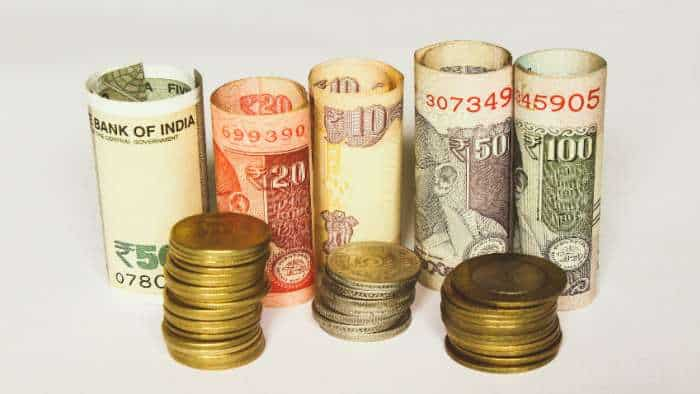Advance preparation by exporters, government must comply with EU's carbon tax says Global Trade Research Initiative
The CBAM or carbon tax (a kind of import duty) will come into effect from January 1, 2026, but from October 1 this year, domestic companies from seven carbon-intensive sectors, including steel, cement, fertiliser, aluminium and hydrocarbon products, will have to share data with regard to carbon emissions with the EU.
)
Government and exporters have to take urgent steps like devising mechanisms for monitoring emissions data, and providing incentives for the adoption of greener technologies to deal with the European Union's carbon tax as it would impact exports of sectors like metals, a report said.
Suggesting a nine-step action plan, the report by Global Trade Research Initiative (GTRI) said that Indian firms have less than 40 days to prepare for the CBAM (carbon border adjustment mechanism) transition.
The CBAM or carbon tax (a kind of import duty) will come into effect from January 1, 2026, but from October 1 this year, domestic companies from seven carbon-intensive sectors, including steel, cement, fertiliser, aluminium and hydrocarbon products, will have to share data about carbon emissions with the EU.
"The CBAM tax will start from January 2026, but there are penalties on not reporting, negligent reporting or misreporting of data from October 1, 2023, onwards," GTRI co-founder Ajay Srivastava said.
He said that the transition period for the tax, starting October 1 brings extensive data compliance requirements for Indian exporters.
The GTRI suggestions assume significance as the EU on August 17 notified compliance requirements for the CBAM transition period, which starts from October 1 this year.
"The CBAM documents exceed 800 pages of complex legal, technical texts, necessitating thorough understanding by the government and industry," he added.
The CBAM will translate into a 20-35 per cent tax on select imports into the EU starting January 1, 2026.
India's 26.6 per cent of exports of iron ore pellets, iron, steel, and aluminium products go to the EU. These products will be hit by CBAM. India exported these goods worth USD 7.4 billion in 2023 to the EU.
"CBAM imposes massive data compliance requirements on Indian exporters. For every consignment, exporters have to share hundreds of 1000 data points, explanations, and methods used with EU counterparts. Neglect or misreporting leads to stiff penalties," Srivastava said.
He said that with a low level of domestic data capture, Indian firms need to set up systems first before reporting data.
"Small firms will suffer more from penalties than tax burden," he cautioned.
The nine steps include awareness and education; data collection and management; compliance strategy; reporting and submission; risk mitigation; long-term planning; monitoring and review; and industry-academia collaboration.
The report asked for the setting up of a dedicated task force or working group comprising representatives from relevant ministries like commerce and environment to oversee CBAM compliance and facilitate communication between industries and government bodies.
It also said that companies should invest in setting up robust data collection systems to accurately track emissions throughout their production processes, and collaborate with technology providers to develop software tools that can help streamline data capture and management for reporting.
On data preparation, it said industries should form dedicated teams responsible for data preparation and submission in line with the CBAM requirements.
"Companies should develop standardized templates for data collection and reporting, aligning with EU's specified formats; and foster open communication with EU-based importers to ensure a smooth exchange of emissions data and reporting information," it added.
As there will be a quarterly reporting system, the report said that there is a need for internal protocols for review and verification of data before submission to avoid penalties.
Further for long-term planning, the report recommended industries to invest in research and innovation to reduce emissions and improve energy efficiency; and asked the government to provide incentives, grants, or subsidies to companies that adopt greener technologies.
To strengthen industry-academia collaboration, it asked academic institutions to offer specialized courses and training programmes on carbon emissions reporting and management.
"By systematically following the action plan, the government and industries can prepare for the challenges posed by the CBAM, ensure smooth compliance, and minimize the risk of penalties while positioning themselves for a more sustainable future," it added.
Get Latest Business News, Stock Market Updates and Videos; Check your tax outgo through Income Tax Calculator and save money through our Personal Finance coverage. Check Business Breaking News Live on Zee Business Twitter and Facebook. Subscribe on YouTube.
RECOMMENDED STORIES

Sukanya Samriddhi Yojana vs PPF: Rs 1 lakh/year investment for 15 years; which can create larger corpus on maturity?

Top 7 Flexi Cap Mutual Funds With up to 52% SIP Return in 1 Year: Rs 20,000 monthly SIP investment in No. 1 fund has generated Rs 3.02 lakh; know about others too
04:07 PM IST









 Russian oil finds its way to Europe via India; India now biggest exporter of fuel to EU
Russian oil finds its way to Europe via India; India now biggest exporter of fuel to EU Meta slapped with $102 million privacy-related penalty
Meta slapped with $102 million privacy-related penalty EU transfers 1.5 billion euros of frozen Russian assets to aid Ukraine
EU transfers 1.5 billion euros of frozen Russian assets to aid Ukraine EU says Apple breached new digital competition rules with App Store restrictions
EU says Apple breached new digital competition rules with App Store restrictions  European Union lawmakers agree on artificial intelligence laws
European Union lawmakers agree on artificial intelligence laws